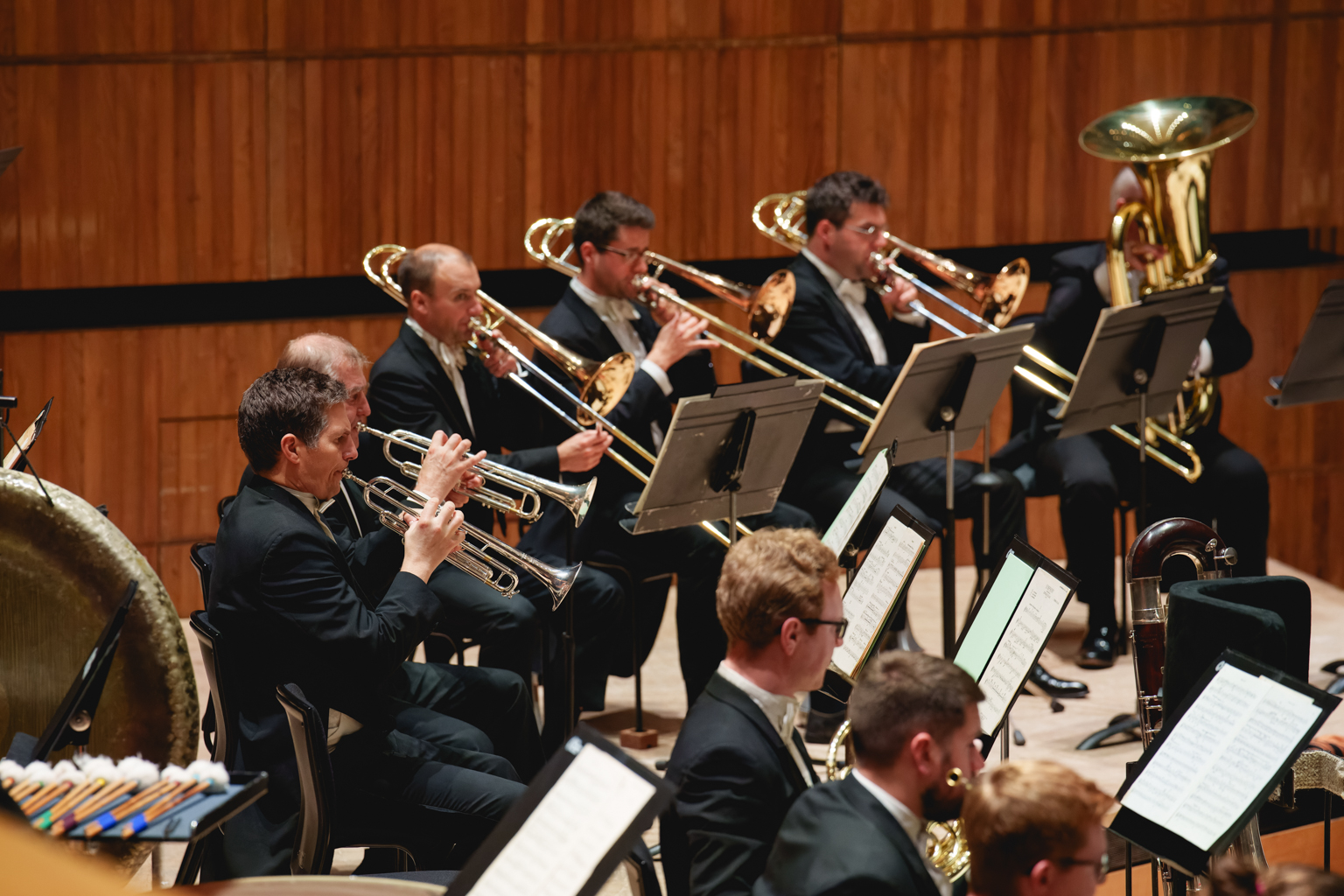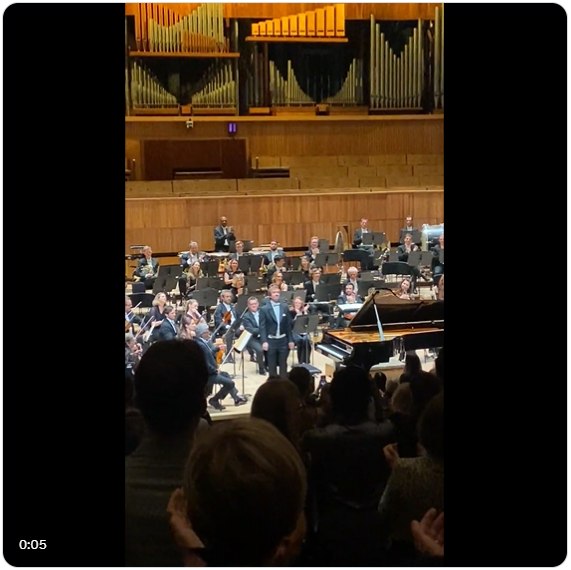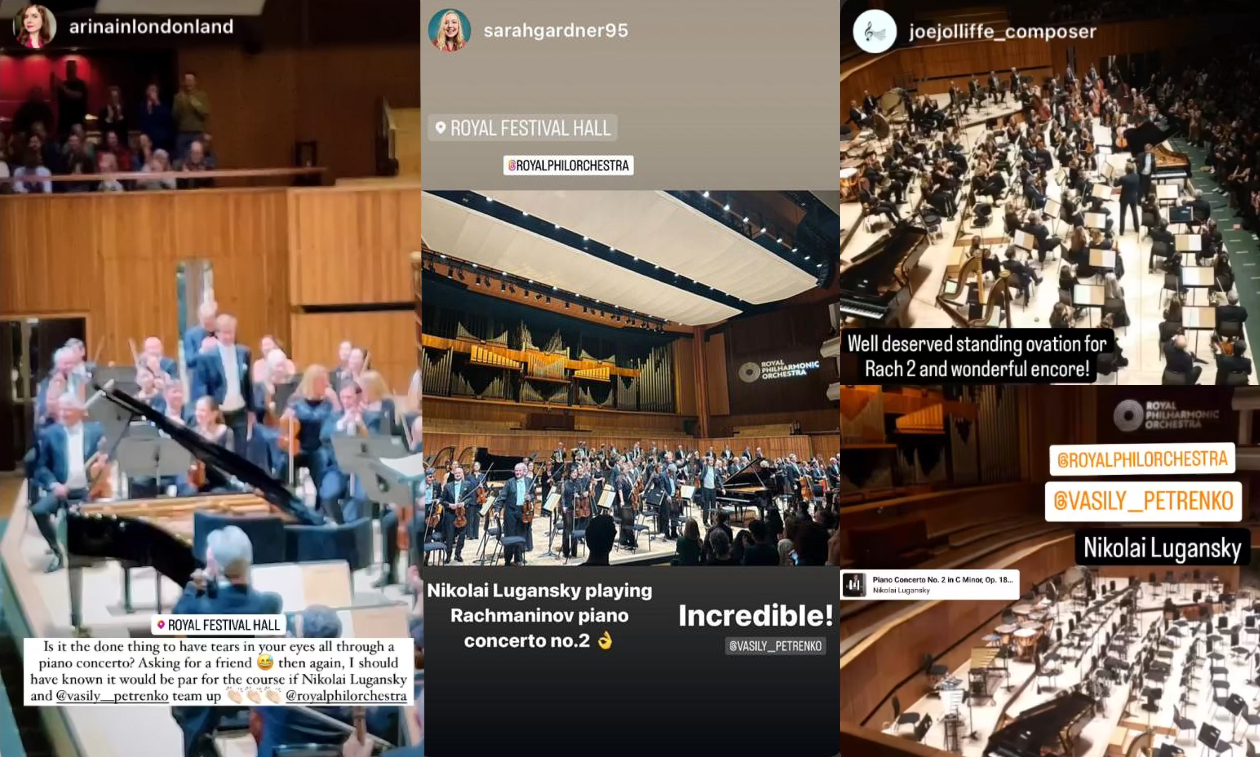On Sunday 29 October, the Royal Philharmonic Orchestra opened its 2023–24 season Icons Rediscovered in Southbank Centre with Music Director Vasily Petrenko, performing to a packed Royal Festival Hall. The concert began the series' dive into the music of two Romantic icons: Elgar and Rachmaninov, two contemporary composers who never met but defined the music of their respective homelands, and both faced upward hills towards their eventual recognition. Elgar's Symphony No.1 was paired with Rachmaninov's Piano Concerto No.2, which featured soloist Nikolai Lugansky.
Read on to view more photos and reactions from the evening.
Vasily Petrenko introduced the programme by drawing connections between Elgar and Rachmaninov as composers who lived across similar periods of time and witnessed the sunset of their nation's empires. Though both of them were prone to the nostalgic and bittersweet, Vasily noted how they even though they both include "a lot of drama into their concertos and symphonies, they all end with optimism, with daylight, and with the triumph of the human spirit."
![]()
The concert began with an exhilarating flight with Lera Auerbach's Icarus, a symphonic imagining of the myth of Daedelus and Icarus, which moves from dramatic orchestral climaxes (with the aid of a theremin) as the mythic character launches into flight to sombre moods as Icarus falls to earth. The young Russian composer wrote in the notes for the piece that "if Icarus were to fly safely—there would be no myth. His tragic death is beautiful... The desire to go beyond the boundaries into the ecstatic visionary realm of soaring flight is essentially human."

Theremin player Lydia Kavina

Following in the programme was Rachmaninov's Piano Concerto No.2 with Nikolai Lugansky. One of the most popular piano concertos of all time, it was written after a long period of depression after the failure of his First Symphony. His recovery was aided by the hypnotist Nikolai Dahl, and Rachmaninov's writer's block was lifted, allowing him to compose the Second Piano Concerto, which was premiered in 1901.

"[Lugansky] brought out the vein of steel in the music, particularly in the return of the big melody at the end of the 1st movement, which he made seem as implacable as fate. Everything in the hugely complex piano part received its proper due, even those stony off-beat accents in that same movement which often pass by unnoticed." The Telegraph, ★★★★

"it was his ability to bring out the lyricism from within even the densest of textures that impressed most... Even when taking a back seat with rippling figuration, the balance was perfect, with merit also due to Petrenko for constant attention to orchestral dynamics." Bachtrack, ★★★★
After a rapturous applause, Nikolai played Rachmaninov's G-sharp minor Prelude from the Op.32 for an encore.

The second half of the concert was Elgar's Symphony No.1. As Vasily highlighted before the concert, Elgar felt a great weight on his shoulders in the near ten years from its conception to its 1907 premiere in Manchester, as Britain was known as the 'land without music' by his German contemporaries, as Elgar's homeland had no comparable symphonic tradition. Elgar demonstrated that an English composer could produce a symphony that could rival the established icons of symphonic music, and it received a hundred more performances worldwide in the year afterwards. 'It has no programme', Elgar wrote, 'beyond a wide experience of human life with a great charity and a massive hope in the future.'

"[Elgar's Symphony No.1] showcased the orchestra’s current form, the strings rich and velvety, the wind and brass soloists dovetailing skilfully in Elgar’s endlessly shifting combinations of tone colour. Petrenko’s conducting balanced solidity with lightness, bypassing the bombast and making something especially effective of the moment in the finale when the fierce march tune is transformed into something tender." The Guardian, ★★★★

"Petrenko took no prisoners with an incredibly quick second movement; the RPO ensemble was highly impressive here. There was a full-hearted expression of the slow movement’s lyrical melody, but the finale again had that sense of urgency and forward trajectory, building inexorably to the big tune, with its sea-sick swells of accompaniment, bringing the work to a fittingly triumphant conclusion." Bachtrack, ★★★★

"From the passages of bittersweet wistfulness that bring relief to the opening drama, through the river-reverie punctuating the march-mania of the scherzo to what for me is the most moving Adagio in any symphony, it all touched the soul in a very special way... Last night we witnessed a rare level of engagement and clarity which will put other orchestral concerts in perspective for some time to come." ArtsDesk, ★★★★★

Finally a proper piano concerto and it’s the good old Rach 2 by one of the best Rachmaninov interpreters. The performance turned out to be a treat both to the ears & the eyes, and earned a well deserved long standing ovation. Now really looking forward to his recital in Nov.😆🎵 pic.twitter.com/QG8PqRj2Y1
— Y Liu (@jubilate1986) October 29, 2023
Standing ovation for Nikolai Lugansky following a breathtaking rendition of #Rachmaninov Second Piano Concerto with Vasily Petrenko and @royalphilorch at @southbankcentre pic.twitter.com/3RFD7PCBSu
— Nikita Sushentsev (@NikiSushentsev) October 29, 2023
Explore our Icons Rediscovered series in Southbank Centre and the Royal Albert Hall.
Read more on Elgar and Rachmaninov
Discover and listen to #MoreMusic from the worlds of Elgar and Rachmaninov.




